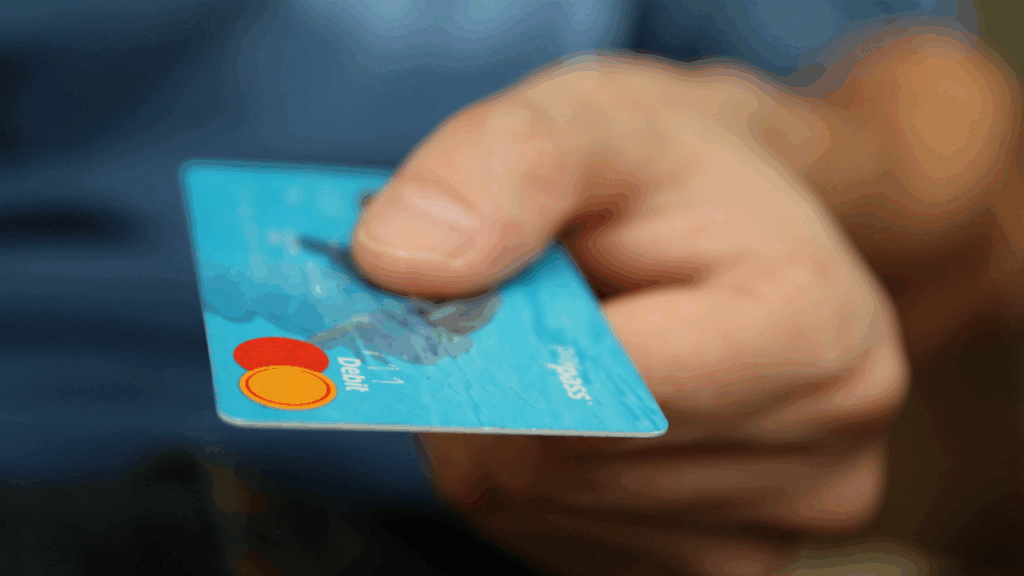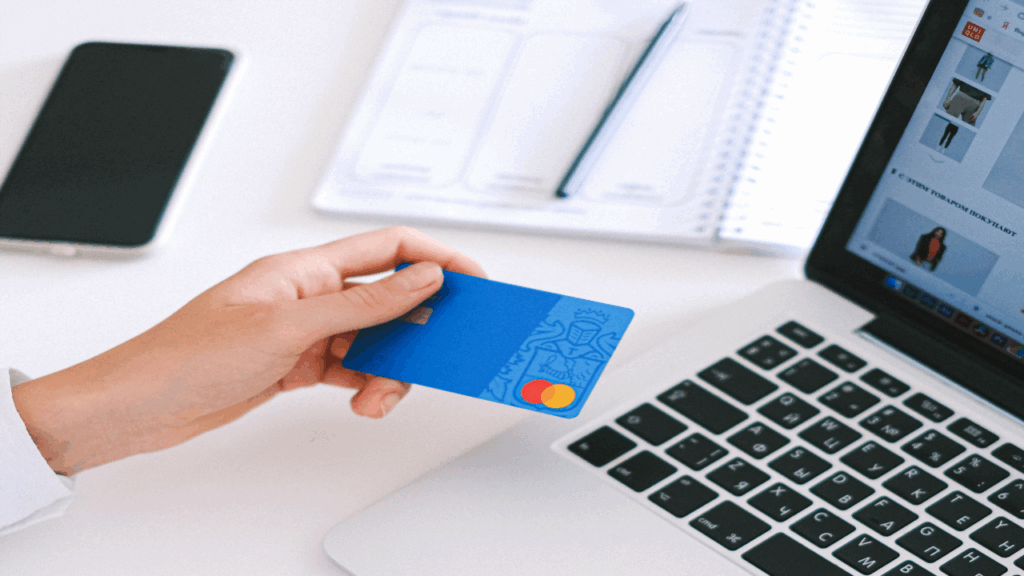Building Financial Literacy Through Safe Lotte Voucher Purchases and Sales

1. Introduction Understanding the Rise of Voucher Transactions in Korea
Over the past five years, South Korea has seen a remarkable shift in consumer finance behavior. According to a 2024 report by the Korea Financial Consumer Agency, more than 64% of Korean households now use some form of digital or physical voucher, whether for groceries, fashion, or entertainment. Among them, Lotte Department Store vouchers stand out not just as gifts, but as tools for personal financial management.
With inflation, cost-of-living increases, and evolving e-commerce ecosystems, consumers are becoming more strategic about how they spend, save, and liquidate assets. This has led to a growing culture around Lotte Voucher Purchases and Sales, where buying and selling vouchers has evolved from a convenience into a structured financial activity.
In this article, we’ll unpack how this voucher economy contributes to financial literacy, what the legal frameworks say about it, and how both casual shoppers and financially conscious users can safely navigate the system.
2. Context and Purpose The Economic Role of Vouchers Today
The discussion around Lotte Voucher Purchases and Sales is not just about trading gift certificates it’s about understanding how modern consumers treat alternative value storage.
Lotte vouchers, originally introduced as a promotional and customer loyalty tool in the early 1990s, have now become a stable medium of exchange in retail finance. As mobile payment systems and cashless platforms became mainstream, department store vouchers gained new value: they function as semi-liquid assets, bridging the gap between digital wallets and physical currency.
Recent trends show that Lotte vouchers are increasingly used in secondhand exchanges and household budgeting. Families now treat them as short-term financial instruments, converting them to cash when necessary or gifting them strategically during high-spend seasons like Chuseok or New Year.
This transformation makes it crucial to understand not just how vouchers circulate, but how they shape spending habits and support responsible consumer behavior.
3. Core Concept How Lotte Voucher Purchases and Sales Work
At its foundation, the concept is simple:
Consumers purchase vouchers either from authorized retailers or digital platforms and may later sell or redeem them depending on their financial needs.
The typical process includes:
- Purchase: Vouchers are bought at full face value (₩10,000, ₩50,000, or ₩100,000).
- Usage or Holding: Some consumers use them directly for goods and services at Lotte-affiliated merchants, while others hold them as flexible spending assets.
- Resale or Cash Conversion: Holders can resell them on regulated platforms for slightly less than face value a transaction that provides instant liquidity.
This cycle supports consumer flexibility while reducing waste. It also demonstrates how household finance is becoming more decentralized. People manage their resources outside traditional savings accounts.
However, misunderstandings persist. Some users equate voucher resale with risky secondary trading or gray-market activity. In truth, when conducted through verified businesses under Korean financial regulations, such transactions are fully lawful and help improve financial agility for everyday users.
4. Utility and Motivation Why People Engage in Voucher Trading
The growing preference for Lotte Voucher Purchases and Sales among Korean households is not accidental; it reflects clear financial logic mixed with practical psychology.
Economic Drivers
- Liquidity Needs: Cashing out unused vouchers helps cover emergency or monthly expenses without relying on loans.
- Discount Opportunities: Consumers can sometimes buy vouchers below face value, creating instant purchasing power.
- Diversification: Families view vouchers as a low-risk, non-bank form of value storage, especially in uncertain markets.
Emotional and Behavioral Drivers
- Control Over Spending: Using vouchers sets defined limits and prevents impulse buying.
- Gift Flexibility: It’s easier to exchange or sell a voucher than to request refunds for unwanted items.
- Convenience: Mobile-based voucher platforms have made buying, selling, and tracking balances effortless.
These motivations show that the voucher ecosystem is not a side economy, it’s a reflection of how real households make smarter, data-informed financial decisions.
5. Legal and Regulatory Framework Rules That Protect Consumers
Voucher transactions in Korea operate under a dual-regulatory framework: consumer protection and financial transparency. The Electronic Financial Transactions Act governs the handling of digital vouchers, ensuring that all monetary conversions including sales, purchases, or refunds follow secure, traceable processes.
Under Korean law:
- Selling or exchanging vouchers is legal if the business is properly registered.
- Operators must disclose rates and terms clearly to users.
- False advertising, hidden fees, or misuse of personal data is prohibited.
Consumers should also be aware of gray-area transactions. Unauthorized brokers who advertise excessively high resale rates often bypass tax or identity verification, leading to fraud and data theft. Responsible participation begins with awareness verifying that platforms display legitimate business registration numbers, transparent contact information, and secure payment systems.
The legal structure ultimately aims to promote trustworthiness and fairness, ensuring that every transaction supports, rather than exploits, consumer financial literacy.
6. Expert Perspective Financial Analysis and Market Insight
Financial analysts view vouchers as a microeconomic reflection of liquidity behavior. In simpler terms, they reveal how individuals handle “idle money.”
According to data from Korea’s Department Store Association, voucher sales grew 11% in 2023, with Lotte capturing nearly 40% of the market share. This suggests that consumers increasingly treat vouchers as hybrid instruments, part convenience, part currency.
Economists also point out that when properly regulated, voucher trading supports the financial inclusion of non-traditional users such as freelancers or small merchants who prefer flexible, cash-like instruments over formal credit systems.
From an educational standpoint, promoting awareness of voucher systems helps foster financial literacy. By learning how to buy, sell, and redeem safely, individuals gain hands-on experience with value management, fee structures, and market risk skills directly applicable to broader finance topics like investment or budgeting.
The key takeaway: Lotte Voucher Purchases and Sales are not just about commerce they’re about consumer education through real-world financial participation.
7. Building Financial Responsibility – From Habit to Awareness
Understanding voucher systems encourages users to think like financial planners. Each purchase or sale teaches principles such as:
- Evaluating risk vs. reward.
- Reading fine print and fee disclosures.
- Timing transactions for optimal value.
This behavior builds practical literacy turning daily habits into long-term learning. For instance, a consumer who compares voucher resale rates learns the same comparative reasoning used in stock or bond trading. Someone who manages voucher expiration dates practices portfolio management discipline in miniature form.
These lessons demonstrate how accessible financial tools can empower people. By participating responsibly in 상품권 판매 and secondary voucher exchanges, individuals move closer to understanding key financial principles without formal education.
8. Practical Recommendations for Safe Voucher Use
Here’s how to engage in voucher trading safely and confidently:
- Choose verified channels. Always transact through authorized department store counters or licensed online platforms.
- Check exchange rates. Avoid operators offering extreme discounts or unrealistic rates.
- Read terms carefully. Understand refund policies, service fees, and payment timelines.
- Protect personal data. Share identification only with verified companies under encryption.
- Record every transaction. Keep receipts, screenshots, or digital logs for reference.
Visit Us on official financial education pages or consumer protection sites to learn more about safe voucher handling.
These practices ensure not only safety but also reinforce the principles of transparency and accountability that define financial literacy.
9. Conclusion – Financial Literacy Through Everyday Decisions
The rise of the voucher economy is reshaping how Korean families view value, risk, and opportunity. Lotte Voucher Purchases and Sales serve as an educational bridge teaching users how to make informed, data-driven financial choices through something as simple as a department store certificate.
By participating responsibly, consumers gain firsthand experience in managing liquidity, understanding market dynamics, and recognizing the importance of secure digital systems.
In the broader picture, this isn’t just about convenience, it’s about empowerment. When used wisely, vouchers transform from short-term tools into lifelong lessons in financial awareness, discipline, and adaptability.
10. Frequently Asked Questions (FAQ)
Q1: Are voucher purchases and resales legal in Korea?
Yes. Both activities are legal when conducted through registered and tax-compliant businesses.
Q2: Why do voucher prices vary on resale platforms?
Rates fluctuate based on demand, seasonality, and voucher brand popularity. Lotte vouchers often maintain higher resale value due to wide merchant acceptance.
Q3: Is it safe to buy vouchers online?
Yes, but only on verified platforms that display encryption, legal business information, and clear customer service channels.
Q4: How does voucher trading improve financial literacy?
It teaches practical skills like comparing rates, managing small assets, and verifying business legitimacy foundational habits in personal finance.
Final Reflection

Vouchers may seem like small financial instruments, but their impact is significant. Through informed participation in Lotte Voucher Purchases and Sales, Koreans are not just spending smarter, they’re learning to think financially. The future of household finance in Korea lies in this combination of trust, transparency, and daily financial education.